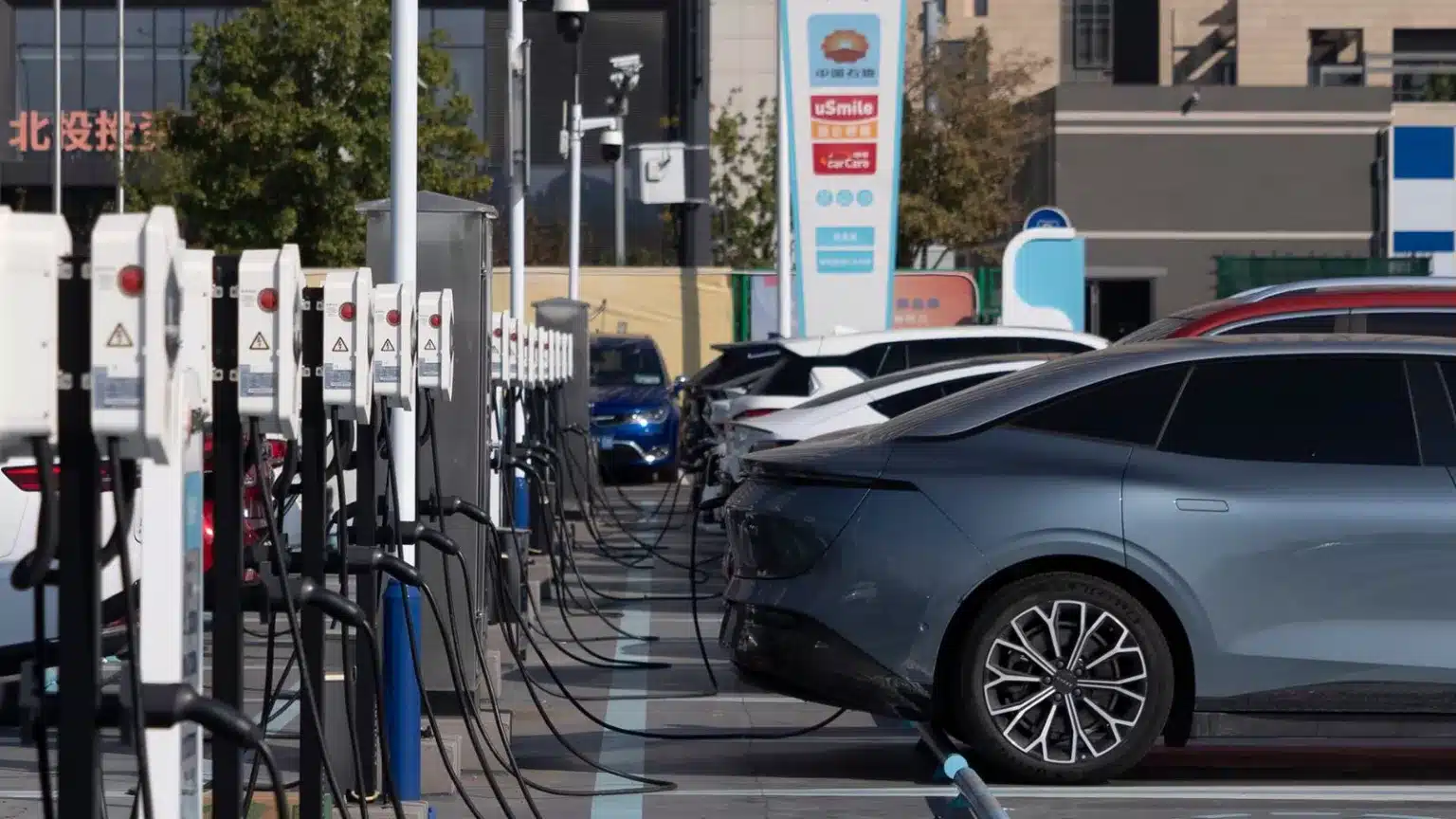China’s Affordable Electric Cars: Unpacking the Hidden Implications

In a significant development for the electric vehicle (EV) market, the BYD Dolphin Surf, a compact and affordable electric car, is set to launch in the UK this week with a price tag of approximately £18,000. Originally known as the Seagull in China, this model has gained immense popularity since its release in 2023. As BYD, the world’s largest EV manufacturer, continues to expand its presence in Europe, established automotive brands are facing increasing competition. The rise of affordable electric vehicles could reshape the market landscape, prompting concerns about security risks associated with Chinese technology.
BYD’s Expansion and Market Impact
BYD has rapidly emerged as a dominant player in the global electric vehicle market, surpassing Tesla in 2024 to become the leading manufacturer of EVs. The company has aggressively entered European markets over the past two years, with ambitions to become the top seller in the UK within the next decade. Steve Beattie, sales and marketing director for BYD UK, emphasized the company’s commitment to growth in the region. The increasing presence of Chinese brands like BYD, Nio, and Xpeng in Europe is expected to challenge traditional automotive giants such as Ford and Volkswagen, as well as established brands like MG and Volvo, which have been under Chinese ownership for years.
The global EV market is witnessing a surge in sales, with 17 million battery and plug-in hybrid cars sold worldwide in 2024, 11 million of which were in China. Chinese brands accounted for 10% of global EV and plug-in hybrid sales outside their home country, a figure projected to rise. This influx of affordable electric vehicles is anticipated to benefit consumers by providing more options and competitive pricing. However, experts have raised concerns about potential security risks associated with Chinese-made vehicles, particularly regarding hacking and data privacy.
Intense Competition in the Chinese Market
China’s automotive industry has experienced rapid growth since the country joined the World Trade Organization in 2001, with a significant acceleration following the introduction of the “Made in China 2025” initiative in 2015. This ambitious plan aimed to position China as a leader in high-tech industries, including electric vehicles. The initiative has drawn criticism from abroad, particularly from the US, over allegations of forced technology transfers and intellectual property theft, which the Chinese government denies.
Chinese manufacturers, including BYD, have benefited from substantial state funding and a well-established supply chain, enabling them to produce vehicles at lower costs. A report from UBS indicated that BYD could manufacture cars 25% more cheaply than its Western competitors. Despite claims of an uneven playing field, Chinese firms assert their competitiveness stems from navigating a highly competitive domestic market. As competition intensifies within China, manufacturers are increasingly seeking opportunities in international markets, particularly in Europe, where the transition to electric vehicles has created new avenues for growth.
Regulatory Responses and Market Challenges
Concerns regarding the influx of Chinese electric vehicles into international markets have prompted regulatory responses in both the US and Europe. In 2024, the Biden administration raised import tariffs on Chinese-made EVs from 25% to 100%, effectively discouraging sales in the US. This move was criticized by Beijing as “naked protectionism.” Meanwhile, the European Union imposed additional tariffs of up to 35.3% on Chinese-made EVs, complicating market entry for these manufacturers. In contrast, the UK has not implemented similar measures, allowing Chinese brands to maintain a foothold in the market.
Experts suggest that the EU’s tariffs have hindered Chinese firms’ ability to leverage their cost advantages in Europe. Matthias Schmidt, founder of Schmidt Automotive Research, noted that the opportunity for Chinese manufacturers to gain market share has diminished due to these tariffs. As European manufacturers race to develop their own affordable electric vehicles, companies like Renault are investing in modern production techniques to enhance efficiency and competitiveness.
Security Concerns Surrounding Chinese Technology
Despite the appeal of Chinese electric vehicles, security concerns have emerged regarding potential risks associated with their technology. Modern vehicles often feature internet connectivity, raising fears about hacking and data privacy. Reports have surfaced suggesting that military and intelligence officials in the UK have been advised against discussing sensitive matters while using electric vehicles, particularly those with Chinese components.
Beijing has consistently denied allegations of espionage, with a spokesperson asserting that Chinese enterprises comply with local laws and regulations. Experts argue that while there are legitimate concerns about cybersecurity, Chinese manufacturers are motivated by the need for international growth and are unlikely to jeopardize their reputation by engaging in surveillance activities. As the automotive industry increasingly incorporates Chinese technology, experts emphasize the importance of robust regulatory oversight to mitigate potential risks while acknowledging the inevitability of Chinese involvement in the future of electric vehicles.
Observer Voice is the one stop site for National, International news, Sports, Editor’s Choice, Art/culture contents, Quotes and much more. We also cover historical contents. Historical contents includes World History, Indian History, and what happened today. The website also covers Entertainment across the India and World.
Follow Us on Twitter, Instagram, Facebook, & LinkedIn

